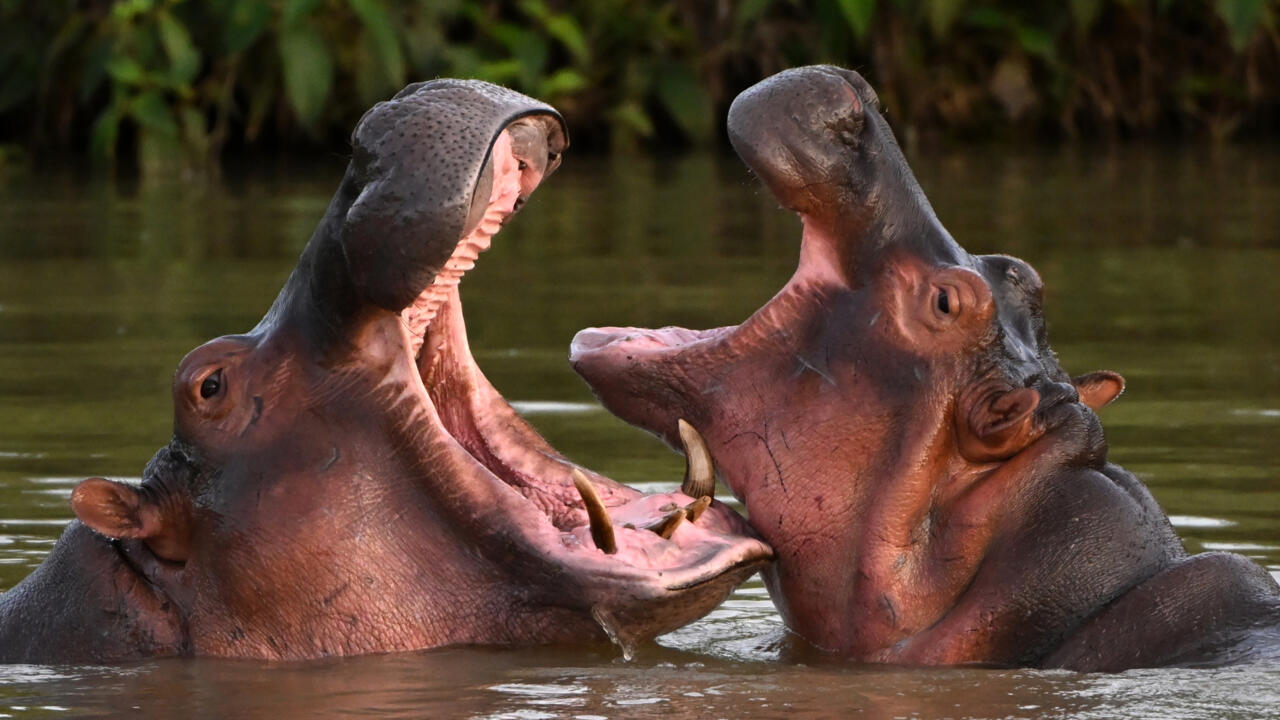The filmmaker responsible for a recent movie featuring a hippopotamus once owned by Colombian drug lord Pablo Escobar expressed amazement at the unpredictable and menacing nature of these creatures.
The creator of “Pepe,” a notable film at the Berlinale festival, Nelson Carlo de los Santos Arias, shared the challenges encountered by his team while filming the hippos in Namibia and Colombia.
“We were caught off guard by the presence of hippos on one occasion, and they nearly overturned the boat we were in, putting our camera in jeopardy,” recounted the Dominican filmmaker in an interview with AFP. “Another time, a particularly aggressive mother hippo charged towards us, causing the sound technician to nearly lose his equipment.”
De los Santos Arias highlighted the impressive speed and strength of these animals, stating, “They can sprint up to 35 kilometers (22 miles) per hour, despite their massive five-ton bulk.”
The director, screenwriter, and producer from the Dominican Republic recounted his harrowing experiences, acknowledging, “Their agility and power are truly astonishing. I wouldn’t dare to repeat that adventure.”
Despite the risky encounters, the 39-year-old director secured a prestigious spot at the Berlinale, with “Pepe” chosen as one of the 20 films competing for the coveted Golden Bear award.
The film, a docudrama, explores the imagined inner world of Pepe, an African hippo that once resided in the private menagerie of the infamous drug lord before meeting a tragic end in 2009 under state orders.
‘A Tale of Legend’
After Escobar’s death in 1993, his estate, including a collection of exotic animals like hippos, was left unattended in a lush region where the creatures thrived without natural predators.
The hippo population flourished, with approximately 160 of these animals now freely roaming in northwestern Colombia.
De los Santos Arias documented the repercussions on local communities, where fishermen encountered threats to their safety and livelihoods due to the unexpected hippo presence.
“For these fishermen, the Magdalena River is their entire existence,” he explained. “Imagine finding a hippo in your backyard, as that river is essentially their domain.”
The decision to euthanize Pepe, as he was fondly known in the media, sparked controversy at the time, despite concerns for public safety.
Pepe evolved into a symbolic figure, a “martyr,” while the hippos became intertwined in Colombia’s political narrative, according to the filmmaker.
De los Santos Arias found the intricacies surrounding Pepe’s essence captivating, exploring themes of colonial legacy and environmental challenges.
“By anthropomorphizing this animal, we delve into the realm of mythology,” he remarked, underscoring the broader ecological implications.
“Some argue that this incursion will result in environmental devastation,” he observed. “Yet, while rivers are drying up in Africa, leading to hippo fatalities, South America boasts abundant water. This situation mirrors the fate of many individuals, creatures, and plants.”
Lupita Nyong’o, the Kenyan-Mexican Oscar winner and president of the festival’s jury, is scheduled to present the Golden and Silver Bear awards during a grand ceremony in Berlin on Saturday.
© 2024 AFP
